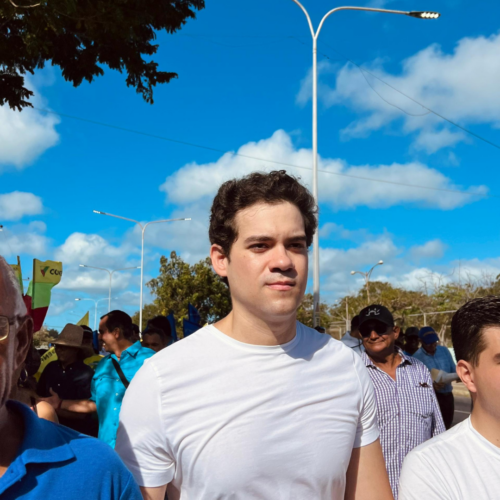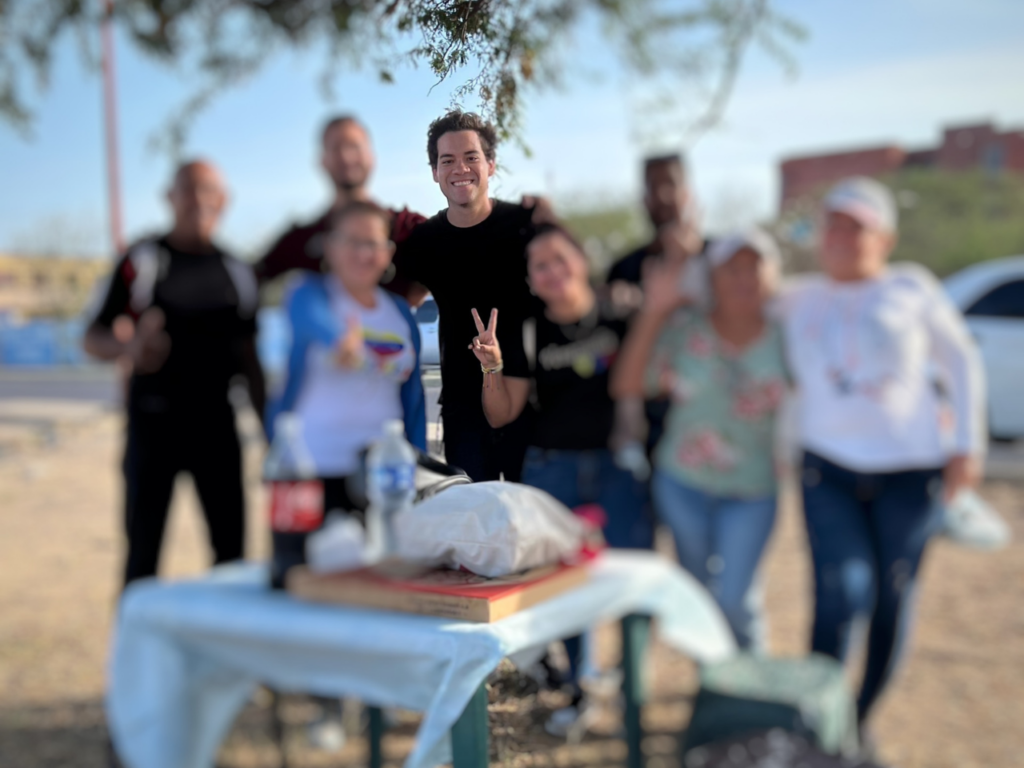From euphoria to exile: Venezuelan activist flees persecution after Maduro’s election fraud victory
My life became anything but normal. I stopped going to the gym, driving my car, visiting friends, or attending social events. I left home only twice, both times to attend protests, returning early to avoid arrest.
- 1 year ago
October 30, 2024

PUNTO FIJO, Venezuela — In a matter of weeks, I shifted from the euphoria of believing real change finally came to my country to fleeing for my life in fear. I dedicated myself to safeguarding the citizens’ vote in Venezuela’s presidential election. As a result, the regime branded me an enemy.
When those in power began to persecute me, the threat of being unjustly arrested loomed. I made the heartbreaking decision to escape my country, leaving everything and everyone behind. Now in Spain, I live in uncertainty, clinging to the hope that one day, I can return to the country I love.
Read more stories from Venezuela at Orato World Media.
With the election results in my hand, my heart raced as I stepped outside
July 28, 2024, became one of the most unforgettable days of my life. That morning, we held presidential elections in Venezuela. From the moment I woke up, I felt a sense of unity in the air. The voting process officially began at 6:00 a.m. My fellow witnesses for Edmundo Gonzalez and I arrived at the polling center three hours early.
[Gonzalez served as the candidate for the Unitary Platform in the 2024 Venezuelan presidential election. Upon announcement of the election results, which international entities say were invalid, an international political crisis ensued.]
By then, over 50 neighbors already lined up, eager to cast their votes. The atmosphere buzzed with hope and commitment. Throughout the 12-hour voting period, everything proceeded smoothly, aside from a few minor irregularities, which were to be expected. People’s expressions appeared joyful. Everyone looked convinced the election could bring real change.
At 6:00 p.m., when the voting centers closed, things took an unexpected turn. Officials refused to hand over the required vote records, violating election law. We protested immediately, and several neighbors joined us in demanding our rights. After some resistance, we finally succeeded in obtaining the records. With the results in my hand, my heart raced as I stepped outside. I knew I was part of something historic.
As I approached the crowd, a hush fell over them, the silence heavy with anticipation. It felt like the tense moment before a tennis serve, where even distant sounds seem amplified. I read aloud, “Nicolás Maduro, 195 votes; Edmundo González, 1,046 votes.” Edmundo won our district with 82 percent of the votes at a center once loyal to the ruling party. The crowd erupted in joy, embracing me as we celebrated what felt like a hard-earned Venezuelan victory. At that moment, it felt like we had our happy ending. I will carry that experience with me forever.
Maduro declared winner without evidence: Venezuelan’s joy turns to rage
As soon as I arrived home, I found my parents and siblings waiting for me anxiously. I still held the voting minutes with me as planned, offering proof we won. My brother turned on the television to follow the news, and suddenly he called us over. We watched in shock as Elvis Amoroso, president of the National Electoral Council, announced Nicolás Maduro as the winner of the Venezuelan elections, offering no explanation. The joy we felt moments earlier vanished, replaced by overwhelming rage.
That night, sleep eluded me, but I found some comfort believing that María Corina Machado’s upcoming speech and the presentation of the vote records would reveal the truth. The next day, two men in an unmarked car arrived at our house, asking for me. They claimed to be technicians from our internet provider, needing access to fix a fault. One wore a hood, the other a cap, and both with masks covering their faces. When they refused to show identification, my brother shut the door. Through the window, we watched them taking photos and videos of our house before leaving.
I did not feel fear, but rather confirmation of what I already knew. We no longer lived in a democracy. I understood the consequences for standing up against the regime. A few days later, I saw on social media that several opposition members had their passports canceled. I checked the Venezuelan identification system and, in red capital letters, saw the word “VOID.” My passport, valid until October 2031, had been politically nullified—a clear warning that I would not be allowed to leave the country.
Despite the harassment, messages of solidarity poured in
I felt the walls closing in but chose to stay in Venezuela. Despite the harassment, messages of solidarity poured in, and friends offered me refuge in their homes. However, I knew the issue was not my house—it was me. Moving would only put others at risk, and I refused to endanger anyone else. My life became anything but normal. I stopped going to the gym, driving my car, visiting friends, or attending social events. I left home only twice, both times to attend protests, returning early to avoid arrest.
On Saturday, August 10, 2024, a gold van parked outside my house. Unlike previous incidents, this van had license plates, and I quickly snapped photos. A man stepped out, took pictures and videos of my home, then sat in the van for four hours, turning the engine on and off repeatedly. The situation felt unnerving, so I sent the photos to a contact at a state agency, asking for information. Shortly after, he replied on WhatsApp, warning me: “Your detention is imminent, and they are taking you to Helicoide [A prison in Venezuela housing regular and political prisoners, known historically as a torture center].” Then, he hung up.
In that moment, I knew my life as I knew it ended. I faced two options: turn myself in or flee the country. I realized whatever I could do for Venezuela’s freedom from abroad would be far more than I could achieve from inside the regime’s prisons. Urgently, I gathered my family including my brothers and my mother and explained the seriousness of the situation. I made my decision, and I needed to leave. We packed a suitcase in under half an hour. Saying goodbye felt heart-wrenching, especially with my mother.
Fleeing Venezuela: from the Colombian border to a new life in Madrid
We all cried, knowing this separation remained indefinite. I removed the SIM card from my phone to avoid being tracked and waited until nightfall. A friend picked me up and drove me toward the Colombian border. In the early hours of August 11, 2024, I left with a heavy heart. At every checkpoint, I feared being stopped, but I passed through without incident.
We arrived in Zulia, where I got out and took an irregular path, known in Venezuela as a “trocha.” I walked for about 40 minutes through a deserted area until I reached Maicao, a small town in Colombia. Crossing the border brought an overwhelming sense of relief. I felt safe. I bought a SIM card, called my mother, and said, “I made it.” That call felt like the closest conversation we ever had.
From Maicao, I traveled to Medellín, where a friend offered me a place to stay weeks earlier. At that time, I optimistically declined, saying, “Thank you, but I hope that will not be necessary.” Yet, less than two weeks later, I found myself in his apartment. My options remained limited: head to the U.S. or Madrid, Spain. Traveling through Central America without a visa proved unfeasible, and crossing the Darién Gap seemed too dangerous. A friend warned me, “Do not even think about it. I have seen people die.”
That convinced me to take the first flight to Madrid. Now, I stay with a family who found my story on Instagram and offered their home. They have been incredible, but even with their support, I don’t feel at home. I only find solace at protests, surrounded by fellow Venezuelans, chanting for Edmundo’s victory. I miss my country deeply, and I know I will return to Venezuela once the regime falls.



































































































































































































































































































































































































































































